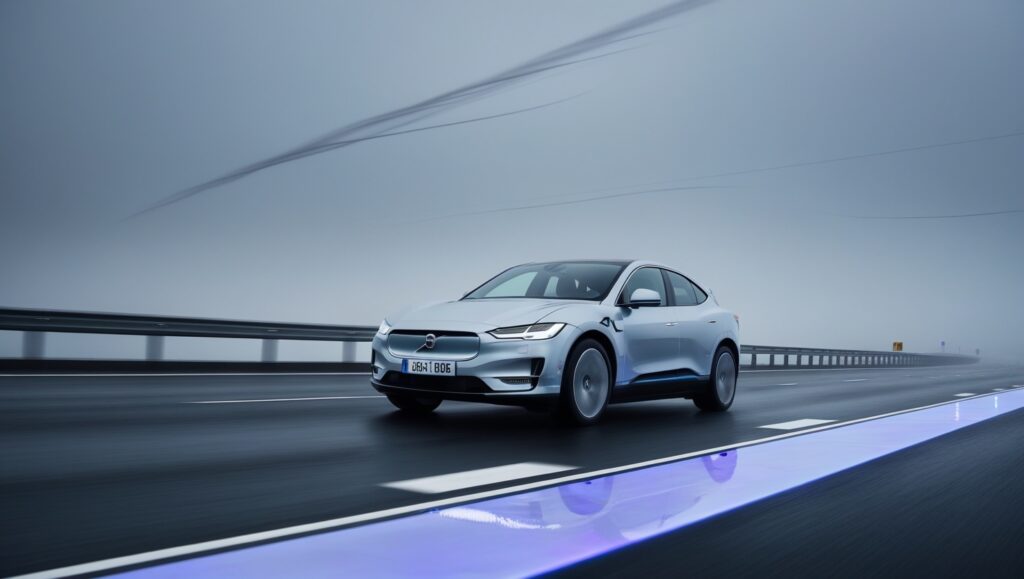Norway, a global leader in electric cars adoption, has taken another groundbreaking step by installing the world’s first wireless charging road. This innovative technology promises to revolutionize how we think about charging electric vehicles, potentially making the future of transportation more seamless and sustainable.
In this article, we’ll explore the significance of this development, its impact on the electric vehicle industry, and what it means for the future of mobility.
The Concept of Wireless Charging Roads

Wireless charging roads represent a monumental shift in the way electric vehicles (EVs) are powered. Instead of relying on traditional charging stations, wireless charging roads enable vehicles to charge as they drive, using embedded technology in the road surface. This technology, known as inductive charging, uses electromagnetic fields to transfer energy between the road and the vehicle’s battery without the need for physical connections.
This breakthrough could eliminate one of the most significant barriers to widespread EV adoption: the inconvenience of finding and using charging stations. With wireless charging roads, top electric vehicles could continuously recharge during travel, reducing downtime and extending range.
Norway: A Pioneer in Electric Vehicle Technology
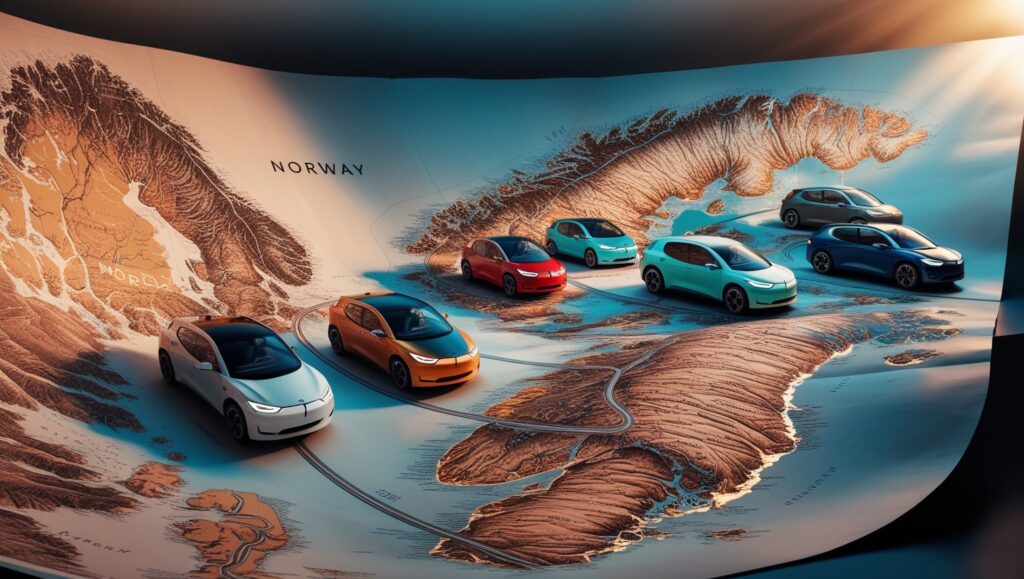
Norway has long been at the forefront of the electric vehicle revolution, with EVs accounting for over 54% of all new car sales in 2020. The country’s commitment to sustainability and innovation has made it the ideal location for piloting wireless charging roads.
The first installation of this technology is located in Oslo, where a stretch of road has been equipped with wireless charging capabilities. The project is a collaboration between the Norwegian government and several leading technology companies, aiming to create a blueprint for future infrastructure that could be replicated globally.
Impact on the Electric Vehicle Market
The introduction of wireless charging roads could have a profound impact on the electric vehicle market. For manufacturers, it presents an opportunity to innovate and differentiate their vehicles by integrating this technology. Top Electric Vehicles Brands are already exploring how to incorporate wireless charging into their future models, anticipating a shift in consumer expectations.
Moreover, wireless charging roads could accelerate the adoption of electric vehicles by addressing one of the key concerns for potential buyers: charging convenience. The ability to charge while driving could make EVs more attractive to a broader audience, including those who may have been hesitant to switch due to concerns about charging infrastructure.
How Wireless Charging Roads Work
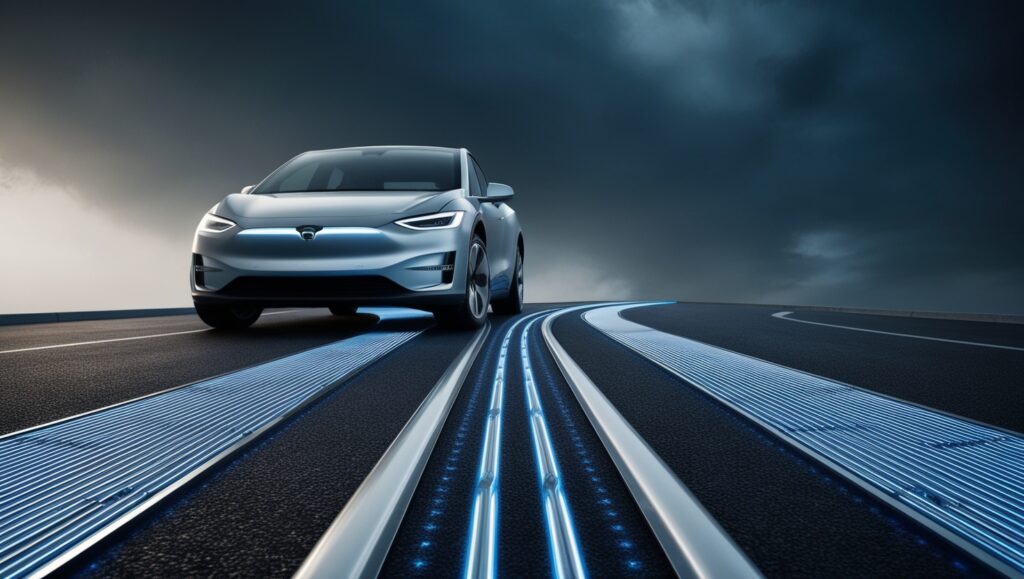
The technology behind wireless charging roads is both complex and fascinating. It relies on a series of coils embedded in the road surface that generate an electromagnetic field. When an electric vehicle equipped with a compatible receiver drives over the road, energy is transferred from the coils to the vehicle’s battery through inductive coupling.
The efficiency of this energy transfer depends on several factors, including the alignment of the vehicle with the coils and the speed at which the vehicle is traveling. However, advancements in technology have made it possible to achieve high levels of efficiency, even at highway speeds.
Advantages of Wireless Charging Roads
Increased Convenience: One of the most significant advantages of wireless charging roads is the convenience they offer. Drivers no longer need to stop and plug in their vehicles to recharge, which could make EVs more practical for long-distance travel.
Extended Range: Wireless charging roads can effectively extend the range of electric vehicles by providing continuous power. This could be particularly beneficial for Top Electric SUVs and larger vehicles, which typically require more energy to operate.
Reduced Infrastructure Costs: While the initial cost of installing wireless charging roads is high, it could reduce the need for extensive networks of charging stations, lowering overall infrastructure costs in the long run.
Future-Proofing: As the technology matures, wireless charging roads could become the standard for electric vehicles, future-proofing infrastructure investments and supporting the long-term growth of the EV market.
Challenges and Considerations

Despite the many advantages, there are also challenges associated with the implementation of wireless charging roads. One of the primary concerns is the cost. Installing the necessary infrastructure requires significant investment, and it’s unclear how quickly these costs will decrease as the technology becomes more widespread.
Additionally, there are technical challenges to overcome, such as ensuring the efficiency and reliability of the energy transfer process. Top Electric Vehicles Reviews suggest that while the technology is promising, it still needs further refinement to meet the demands of everyday driving.
Another consideration is the environmental impact of wireless charging roads. While they could reduce the carbon footprint of electric vehicles by enabling more efficient charging, the production and installation of the necessary infrastructure could have its own environmental costs. It’s essential to consider the full lifecycle impact of this technology to ensure that it aligns with broader sustainability goals.
The Future of Electric Vehicles and Wireless Charging
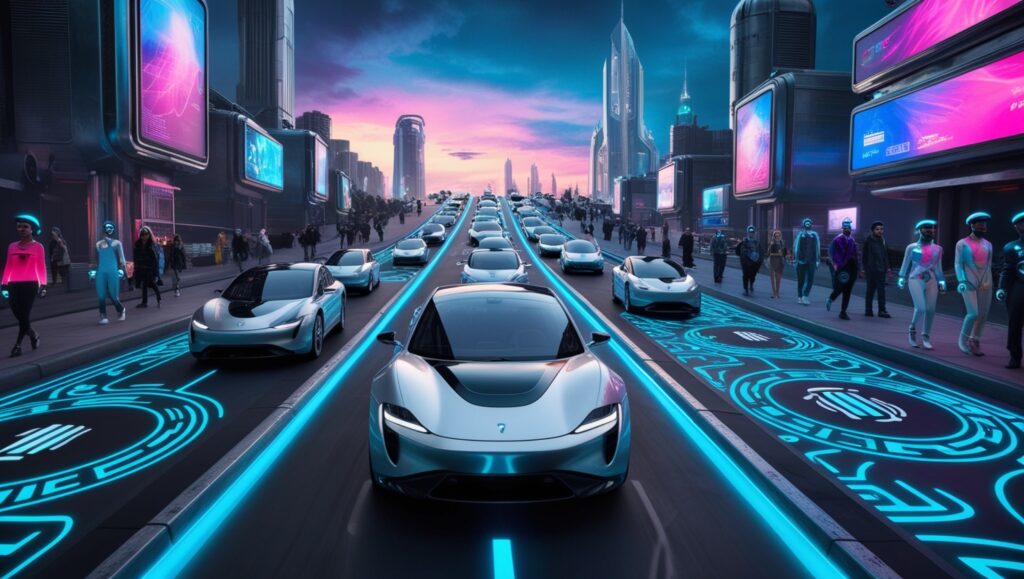
The installation of wireless charging roads in Norway marks the beginning of a new era for electric vehicles. As the technology evolves, it could become a standard feature in cities and highways worldwide, transforming the way we think about transportation.
Top Electric Vehicles Brands are already taking note of this development, with several companies exploring how to integrate wireless charging into their future models. As the technology matures, it could lead to a new generation of electric vehicles that are more efficient, convenient, and accessible than ever before.
Impact on the Global Electric Vehicle Market
The global implications of wireless charging roads are significant. Countries around the world are investing in electric vehicle infrastructure, and the introduction of wireless charging could accelerate these efforts. It could also level the playing field for Top Electric Cars Brands, as companies race to incorporate this technology into their offerings.
Moreover, wireless charging roads could play a crucial role in the transition to sustainable transportation. By reducing the reliance on fossil fuels and enabling more efficient use of renewable energy, this technology could help mitigate the impacts of climate change and support the global push toward a greener future.
What’s Next for Wireless Charging Technology?
As Norway continues to lead the way with its wireless charging road project, other countries are likely to follow suit. The success of this pilot project could pave the way for broader adoption of the technology, with more roads being equipped with wireless charging capabilities.
In the coming years, we can expect to see significant advancements in wireless charging technology, driven by the growing demand for more convenient and efficient charging solutions. As this technology becomes more widespread, it will likely play a pivotal role in the future of electric vehicles, shaping the evolution of the industry for decades to come.
Conclusion: A New Dawn for Electric Vehicles
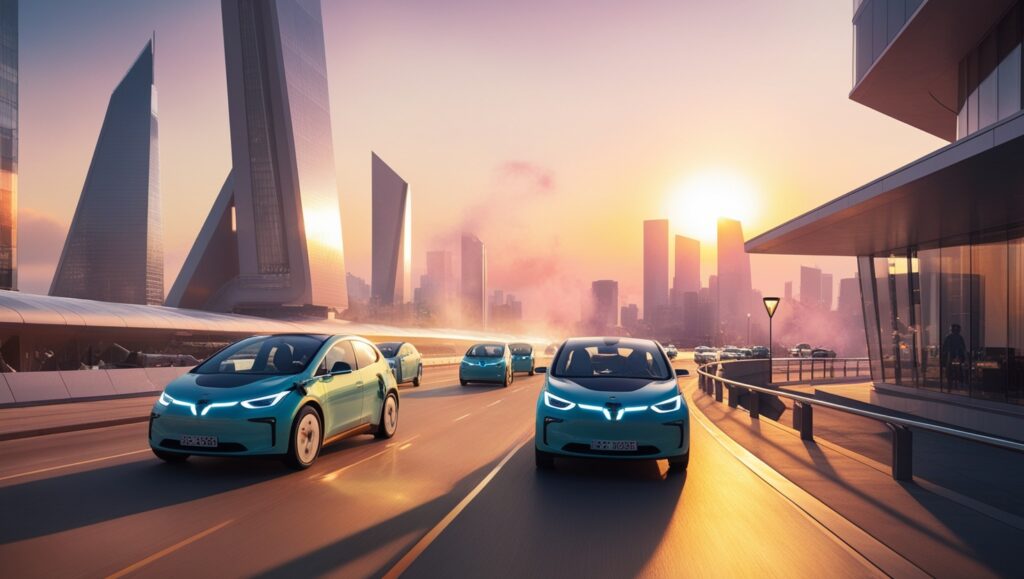
The installation of the wireless charging road in Norway is a significant milestone in the journey toward a more sustainable future. This innovation not only addresses some of the key challenges associated with electric vehicle charging but also sets the stage for further advancements in electric vehicle technology.
As Top Electric Vehicles Brands continue to explore the possibilities of wireless charging, the future of transportation looks brighter than ever. With the potential to make electric vehicles more accessible, convenient, and efficient, wireless charging roads could be the key to unlocking the full potential of the EV revolution.
Whether you’re interested in the latest Top Electric Vehicles News, or just want to stay updated on the best Top Electric Vehicles Blogs, this breakthrough in Norway is undoubtedly one of the most exciting developments in the EV industry today.
